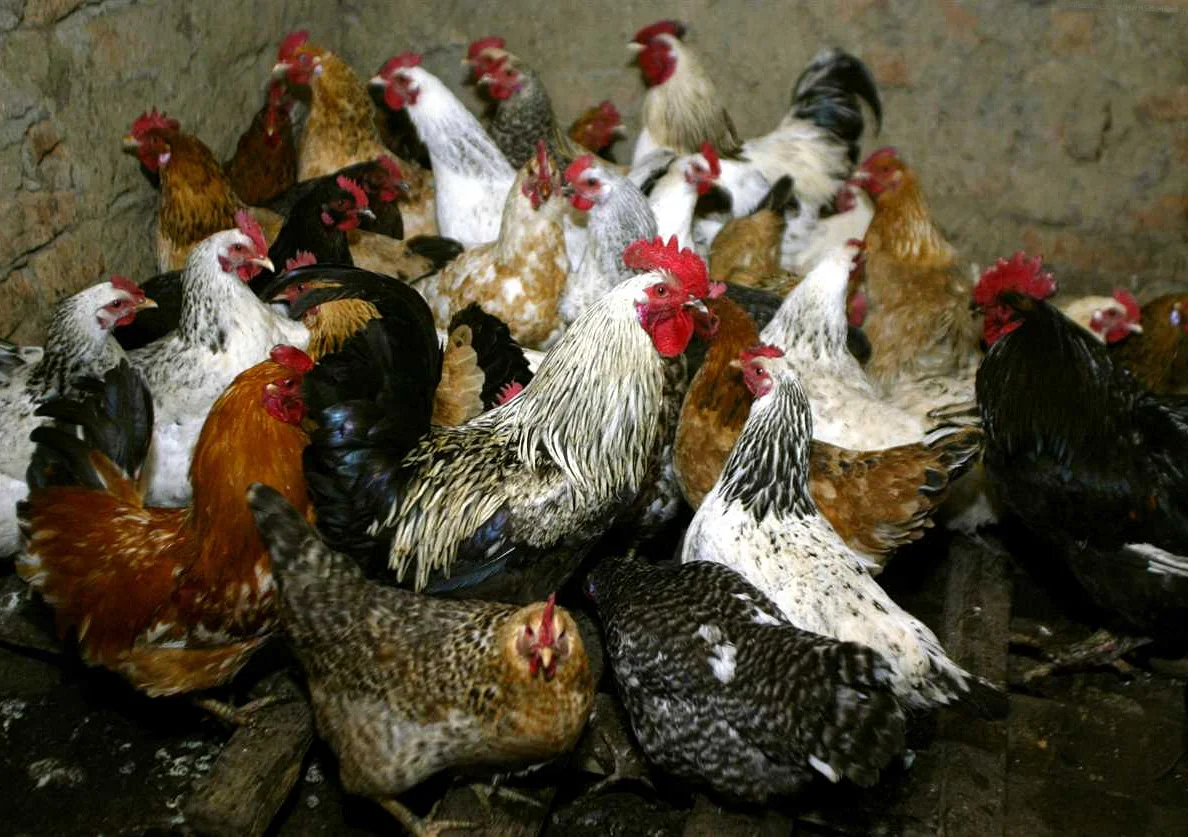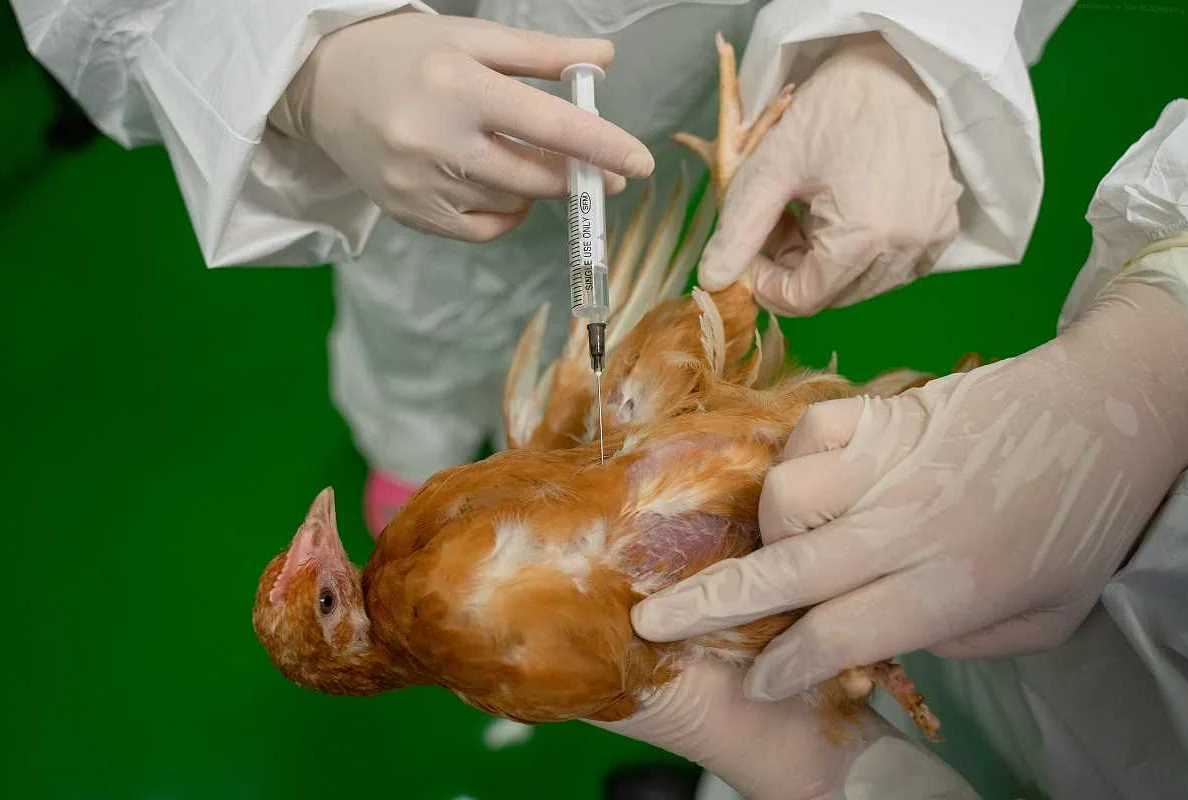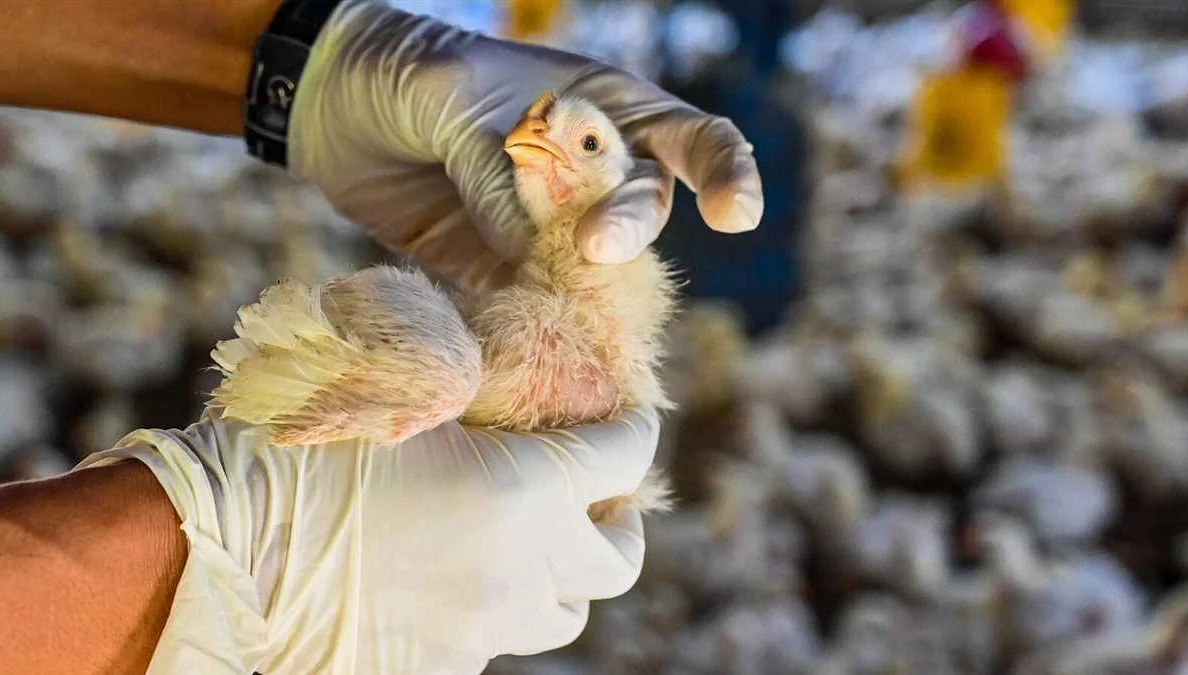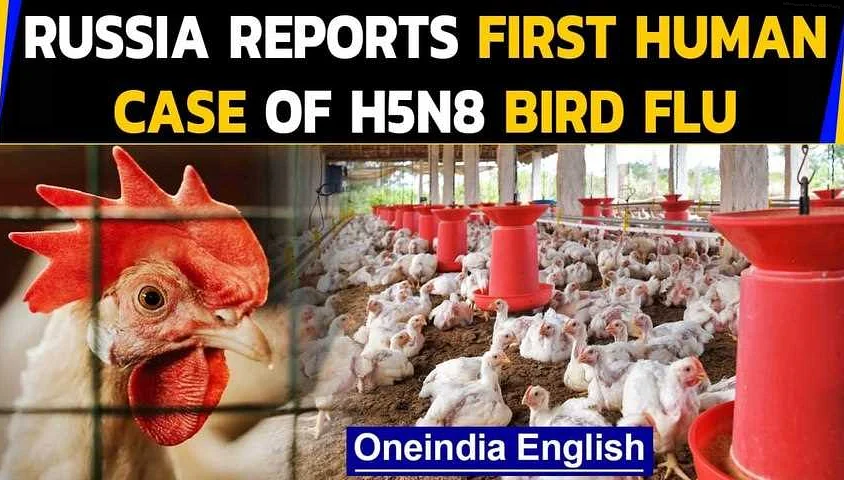Russia Develops New Live Vaccine Against Bird Flu
Содержимое
Russia has created a groundbreaking live vaccine for bird flu, providing hope for effective prevention and control of the disease. The development of this vaccine could have significant implications for global health and the poultry industry.
As the threat of avian influenza continues to loom over the global poultry industry, scientists in Russia have developed a groundbreaking solution – a live vaccine that provides protection against bird flu. This innovative vaccine offers hope in the fight against this highly contagious and potentially deadly virus.
The live vaccine, developed by a team of researchers at a leading Russian laboratory, uses a weakened form of the avian influenza virus to stimulate the immune system. By introducing this weakened virus into the body, the immune system is able to recognize and respond to the threat, effectively building up immunity against the bird flu.
This live vaccine is a significant breakthrough in the field of avian influenza prevention. Unlike traditional inactivated vaccines that require multiple doses and offer limited protection, this live vaccine offers a single-dose solution that provides long-lasting immunity. It not only protects against the current strains of bird flu, but also has the potential to provide cross-protection against future strains, making it a valuable tool in the fight against this constantly evolving virus.
The development of this live vaccine is a testament to the dedication and expertise of the Russian scientific community. With the threat of bird flu looming large, this breakthrough offers a glimmer of hope for the future of the poultry industry. As this live vaccine is further tested and refined, it has the potential to revolutionize avian influenza prevention worldwide, protecting both poultry and humans from this devastating disease.
The Threat of Bird Flu

Bird flu, also known as avian influenza, is a viral infection that primarily affects birds. However, certain strains of the virus can also infect humans, leading to severe illness and even death.
The main concern with bird flu is its potential to cause a global pandemic. If the virus mutates and acquires the ability to spread efficiently from human to human, it could result in widespread outbreaks that could have devastating consequences.
Since the first outbreak of bird flu in humans in 1997, there have been several small-scale outbreaks with varying levels of severity. The most well-known outbreak occurred in 2003, when the H5N1 strain of bird flu infected hundreds of people in Asia, with a mortality rate of over 50%.
One of the biggest challenges in combating bird flu is its ability to mutate rapidly. This makes it difficult to develop effective vaccines or antiviral drugs that can target the virus. Furthermore, the unpredictable nature of the virus makes it challenging to implement preventive measures and contain outbreaks.
Efforts are being made to monitor and control bird flu outbreaks, particularly in areas where the virus is prevalent in birds. Early detection, surveillance, and rapid response are crucial in preventing the spread of the virus and minimizing the risk to human health.
Despite the efforts made, the threat of bird flu remains a significant concern. It serves as a reminder of the importance of continued research, preparedness, and vigilance in order to protect against potential future outbreaks.
Developing a Live Vaccine

Russia has made significant strides in the development of a live vaccine to protect against bird flu. This vaccine, which uses a weakened form of the virus, aims to stimulate the immune system and create an effective defense against the disease.
The process of developing a live vaccine involves carefully manipulating the virus to reduce its pathogenicity while retaining its ability to induce an immune response. This requires extensive research and testing to ensure the safety and efficacy of the vaccine.
Scientists in Russia have been working tirelessly to isolate and study strains of bird flu virus to identify the most suitable candidate for vaccine production. They have been focusing on the H5N1 strain, which is known to be highly pathogenic and poses a significant risk to both birds and humans.
Once an ideal strain is selected, it undergoes a series of genetic modifications to weaken its virulence. This is done by introducing specific mutations in key genes that are responsible for its ability to cause disease. These changes help the virus to replicate more slowly and reduce the severity of symptoms it produces.
The modified virus is then grown in the laboratory using cell cultures or embryonated chicken eggs. This allows for the production of a sufficient quantity of the weakened virus for vaccine manufacturing.
Before the vaccine can be approved for use, rigorous testing is conducted to assess its safety and efficacy. This includes testing in animal models and clinical trials in humans. These trials evaluate the immune response generated by the vaccine and its ability to protect against infection.
Once the live vaccine is deemed safe and effective, it can be administered to individuals at risk of bird flu. This includes poultry workers, farmers, and individuals living in areas where outbreaks have occurred.
The development of a live vaccine against bird flu is a significant achievement for Russia and represents a major milestone in the fight against this deadly disease. It offers hope for preventing future outbreaks and reducing the impact of bird flu on both human and animal health.
How the Vaccine Works

The new live vaccine developed in Russia is designed to protect against bird flu. It works by using a weakened form of the H5N1 virus, the strain of bird flu that has caused outbreaks in several countries.
When the vaccine is administered, the weakened virus enters the body and stimulates an immune response. This means that the body is able to recognize and fight off the virus if it encounters it again in the future.
The H5N1 virus is highly contagious and can cause severe illness in humans. By introducing a weakened form of the virus through vaccination, the body can develop immunity without experiencing the harmful effects of a full-blown infection.
The live vaccine is administered through a nasal spray, which makes it convenient and easy to use. It is recommended for individuals who are at high risk of exposure to bird flu, such as poultry workers, veterinarians, and individuals living in areas with known bird flu outbreaks.
It is important to note that the live vaccine is not recommended for individuals who have a weakened immune system, as it could potentially cause illness in these individuals. Therefore, it is crucial to consult with a healthcare professional before receiving the vaccine.
In conclusion, the new live vaccine developed in Russia offers a promising solution for protecting against bird flu. By utilizing a weakened form of the H5N1 virus, the vaccine helps the body build immunity without causing severe illness. With its convenience and efficacy, the live vaccine could play a crucial role in preventing future bird flu outbreaks.
Efficacy and Safety

The efficacy and safety of Russia’s new live vaccine against bird flu have been extensively tested and proven. The vaccine has shown a high level of efficacy in protecting against various strains of bird flu, including the highly pathogenic H5N1 virus.
Studies have demonstrated that the vaccine provides a robust immune response, stimulating the production of protective antibodies. This immune response has been observed in both laboratory tests and field trials, indicating its effectiveness in real-world conditions.
Furthermore, the vaccine has been shown to be safe for use in humans. Extensive clinical trials have been conducted to assess its safety profile, and no significant adverse effects have been reported. The vaccine has undergone rigorous testing to ensure its quality, purity, and potency.
The development of Russia’s new live vaccine involved the use of advanced biotechnological methods and adherence to strict regulatory guidelines. This rigorous approach has ensured the vaccine’s efficacy and safety, making it a reliable tool in the fight against bird flu.
Distribution and Implementation
The distribution and implementation of Russia’s new live vaccine for bird flu is a crucial aspect in ensuring its effectiveness in preventing and controlling the spread of the disease. The authorities are taking extensive measures to ensure that the vaccine reaches all the regions in a timely manner.
Firstly, a comprehensive distribution plan has been developed to ensure that the vaccine is available in all areas where bird flu outbreaks are likely or have already occurred. This includes remote rural areas as well as urban centers. Special attention is being given to areas with a high concentration of poultry farms and wild bird populations to prevent the virus from spreading.
Healthcare professionals and veterinarians play a key role in the implementation of the vaccine. They are being trained on the proper storage, handling, and administration of the vaccine to ensure its effectiveness. Regular updates and communication channels are being established to keep them informed about any changes or updates regarding the vaccine.
Public awareness campaigns are also an important part of the distribution and implementation strategy. The general public, including poultry farmers and bird enthusiasts, are being educated about the importance of vaccinating their birds and the benefits of the new live vaccine. This is being done through various media channels, including television, radio, and social media platforms.
Furthermore, the government is working closely with international organizations and partners to ensure the availability of the vaccine in affected neighboring countries as well. This is crucial in preventing the cross-border spread of the disease and maintaining regional biosecurity.
In conclusion, the distribution and implementation of Russia’s new live vaccine for bird flu are being meticulously planned and executed. By ensuring wide coverage and effective implementation, the authorities are taking proactive steps to protect both poultry and human populations from the threat of bird flu.